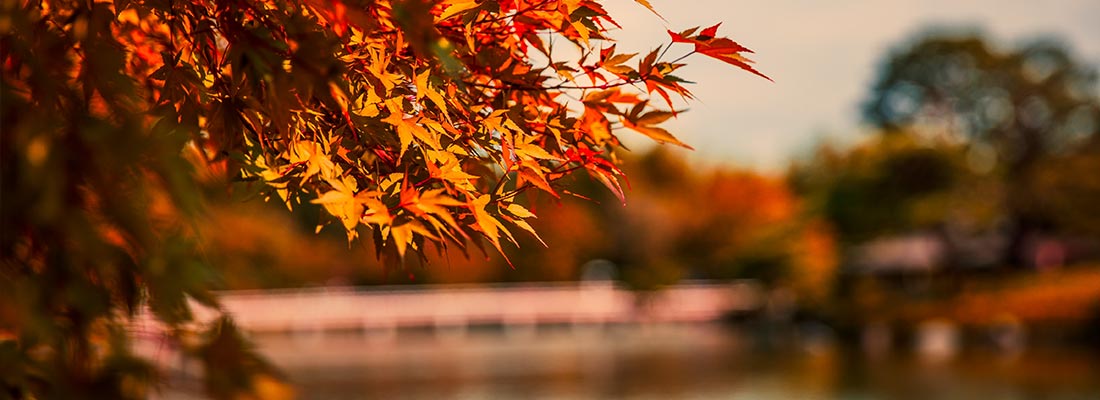5 tips to avoid the winter blues/depression
We up here in the Nordic countries know what autumn means. “Darkness and misery“, as my client told me the other day. I laughed and could agree with the former, but began to think about that thing with the “misery”. It is clearly a darkness and more darker times we are entering and it is not the most pleasant time when the snow starts to come. The transition from autumn to winter offers rain, sleet, slippery roads and cold days. The weather is one thing and we can survive that with our Finnish “Sisu” here in Finland, right? But the darkness can affect us more than you think. Many can enter a phase with sleepless nights, tiredness throughout the days and without the energy to do anything other than sit on the couch indoors. If you recognize yourself in this, it may be the autumn / winter depression that has gently started knocking on your door. It’s time to do something about it.
What is autumn / winter depression?
Our bodies naturally adjust the circadian rhythm according to the light outdoors. To some extent also through the light indoors and from different types of screens (computers, telephones, televisions and so on). The brain needs to be exposed to different lights to know how to secrete different hormones and regulate whether it should boost the body to be active or calm it down to go in for a possible sleep. For example, the sleep hormone, melatonin, is regulated by the retinas of the eye, which sense when light is applied to them. When the retina senses light, the production of melatonin decreases and stops. The body then begins to wake up and become more active.
As the mornings get darker, the day’s light shorter and the evening’s darkness settles earlier in the evening, this impulse of light, which the body needs to naturally regulate the circadian rhythm, will change. The body finds it more difficult to regulate the hormones that choose whether to “wake up” or “turn off” the body. People react to this very differently, but many feel a clear difference in energy levels at the transition between the seasons. This applies not only from summer to autumn and further into winter, but also at other season transitions too.
Common symptoms of autumn / winter depression:
- Morning tiredness
- Tired during the day and a feeling of constant tiredness
- Difficulty falling asleep and / or sleeping much more without feeling more energized and alert
- You often feel depressed
- Feeling of anxiety
- Increased cravings for sugar and sweets. Weight gain around these times is common for many.
It is worth mentioning that the light pulses outdoors cannot be locked in as the only factor that affects winter depression. There are many other factors that can affect this, but the body’s circadian rhythm, energy level and alertness have a clear connection to light and the intensity of light during the day. How often and how much we expose the body to direct light during the day is important and I have been able to see major changes in different clients’ energy levels during these times around the fall / winter with some simple tips that I will share with you here.

5 tips to avoid the winter blues/depression
1. Spend time outdoors in the light as much as you can
“Do not spend time in the dark side”. Star Wars fans knows what this is all about. The most important rule is to spend as much time as you can during the daylight hours outdoors. Go out for a walk for half an hour, if you get up in the morning at the break of dawn, to let your body receive some light. If you are sitting at an office and working, try to position yourself so that a window is close and that the light from outside can reach you.
2. Exercising regularly
Continuing (or starting) to exercise regularly is very important so you won’t sink into a phase of depression and fatigue. Your body rewards you with so many “happy hormones” during and after exercise. Take advantage of it and do not fall into the “couch potato”-mode just because you start to feel more tired around these times. Get to know your body if it is tired because it needs rest / recovery or tired because you have spent too much time in the dark and the feeling of laziness takes over.
3. Keep your routines
Starting to sleep longer in the mornings or going to bed too early is not the best solution to cope with tiredness caused by seasonal changes where the daylight hours become shorter. Continue to set the alarm clock at the same time as you did before and try to go to bed at the same time as usual. Keep your normal routines around your everyday life. If you feel that you are in need of a so-called “powernap”, then make sure not to sleep more than 20-30 minutes. Longer “powernaps” only make it harder for you to fall asleep at regular bedtime.
4. Be active, social, talk to others and have fun
I talked above about exercising regularly and how important it is. With this point I mean to be socially active and not to lock yourself in, alone, when these darker times comes. Be sure to meet friends, family and acquaintances. Talk about different things you feel you need to talk about. Has it been stressful at work? Has something fun, boring, good and wonderful happened? Open up and talk about it with each other. *During these times of current corona pandemic, social gatherings should of course follow recommendations around it.
5. Extra D vitamin intake
This is a question I get from many: “should I take extra vitamin D during the winter?”. The answer is both Yes and No. Without a direct analysis of what your levels of vitamin D are, I cannot directly say if you need extra intake of vitamin D. I need to see what your diet has looked like in the past. If it contains foods naturally fortified with vitamin D such as fatty fish, eggs, meat and dairy products fortified with vitamin D, the need is clearly less. Combine this with someone who likes running who spends many hours on the running track outdoors in the summer, the need of extra vitamin D becomes even less as the body can actually store some vitamin D in the skin that lasts longer into the winter.
If you feel tired around these darker times, know that you do not spend much time outdoors and that your diet does not contain foods enriched in vitamin D, you can and should start by reviewing this aspect first. Spend time outdoors and eat foods that naturally contain more vitamin D. How do you start to feel? If you feel that you want to test a supplement, use one with a maximum dosage of 20µg. Vitamin D is not water-soluble, but fat-soluble, and is stored in the body if the body cannot satisfy everything. See if you start to feel more alert and continue on the same path if you feel a positive change.

There are several things we can do to counteract this winter blues and so-called winter depression. The most important thing is not to change your routines but to continue to be active, social, exercise regularly and eat a varied and healthy diet. I myself can feel the transition between the seasons but always make sure to continue my everyday life in the same way as I did before. Where I know I feel good, healthy and energized.
I hope that with the points above I can help you counteract or minimize the risk of winter blues / depression. If you have questions or thoughts, just get in touch with me via the contact tab in the menu or directly through the chat at the bottom right. Maybe you have your own tips on something that helps or have helped you? I look forward to hearing your experiences and thoughts on the subject.
Good luck!






